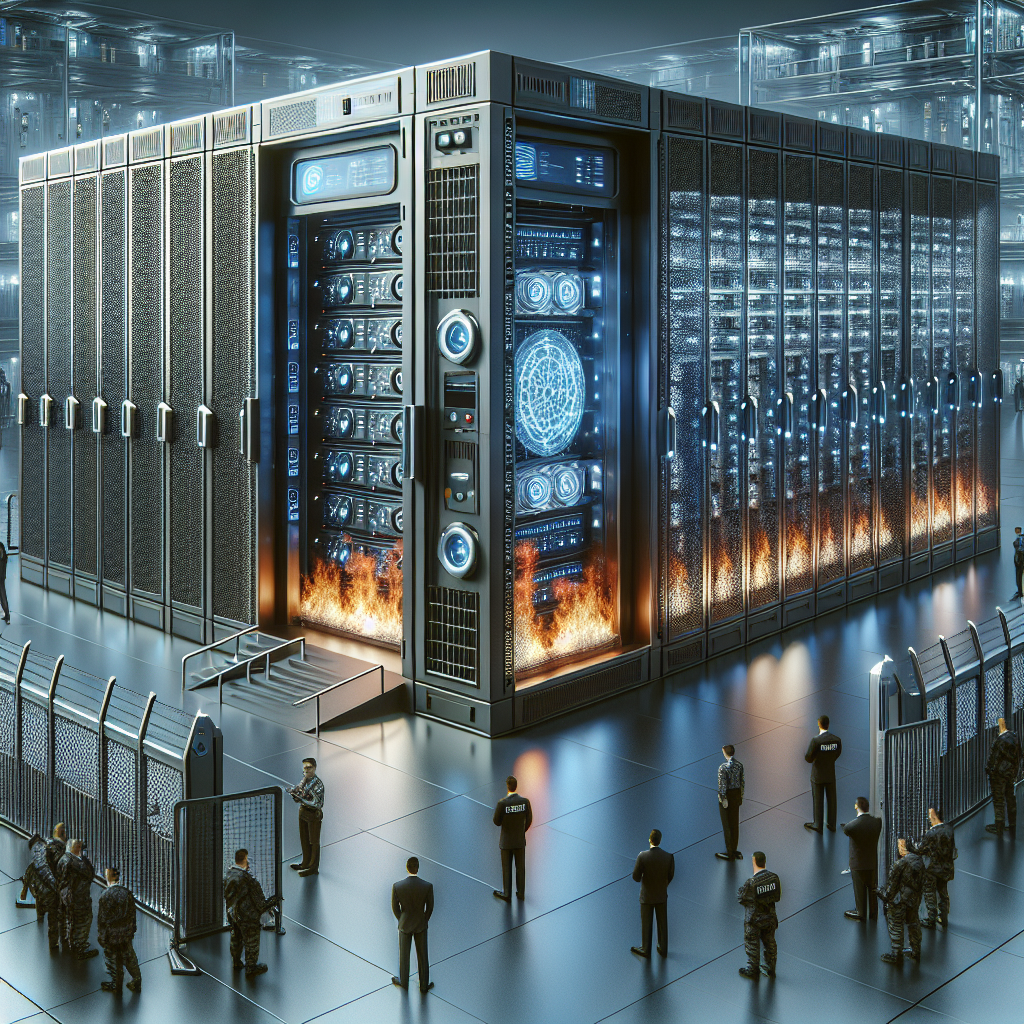Your cart is currently empty!
Tag: Systems
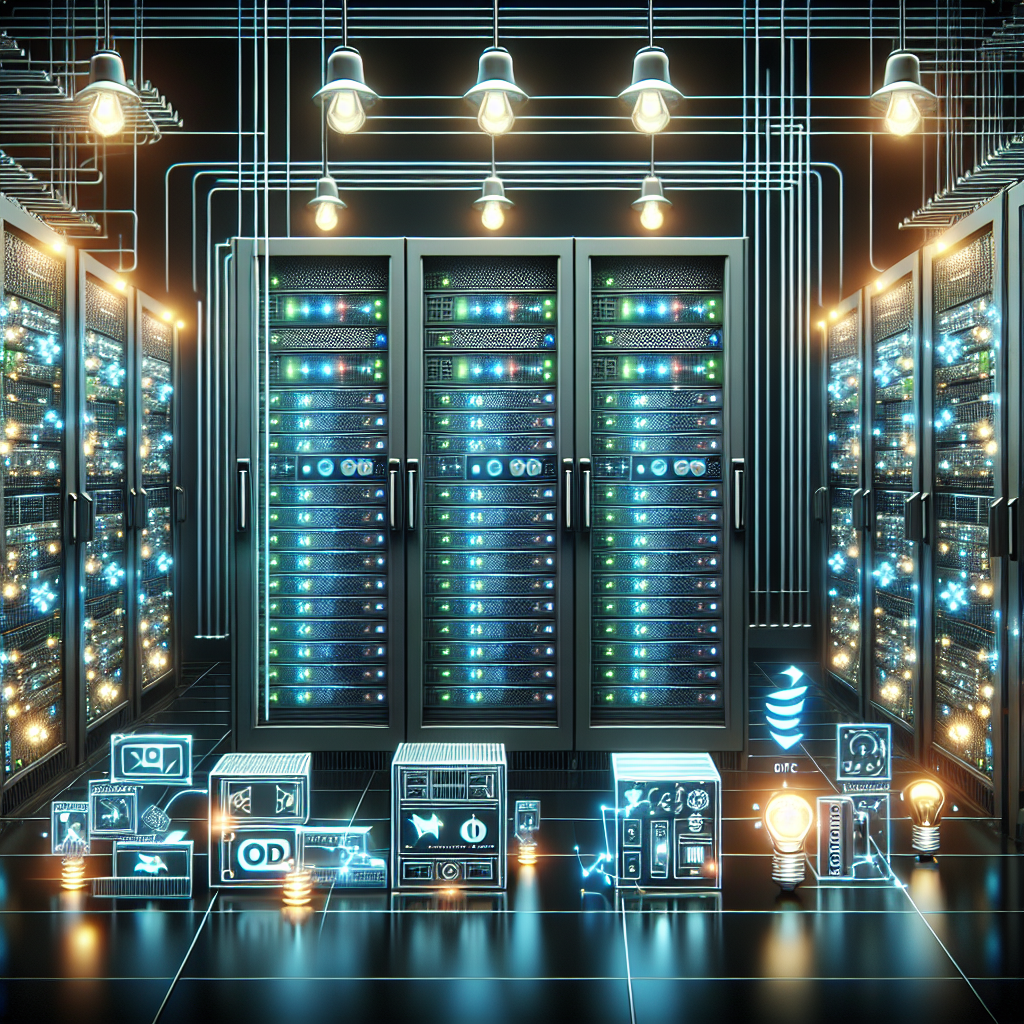
Upgrading Data Center Electrical Systems for Increased Performance and Reliability
Data centers are the backbone of modern businesses, housing the critical IT infrastructure that supports operations and enables digital services. As technology continues to evolve and demand for data processing and storage grows, data center operators are constantly looking for ways to optimize their facilities for increased performance and reliability. One crucial aspect of this optimization is upgrading the electrical systems that power and cool the equipment within the data center.Upgrading data center electrical systems is vital for ensuring that the facility can meet the increasing demands placed on it. Outdated electrical systems may not be equipped to handle the power requirements of modern servers and networking equipment, leading to inefficiencies, downtime, and potential safety hazards. By investing in upgrades, data center operators can improve performance, reliability, and energy efficiency, ultimately saving costs in the long run.
There are several key components of data center electrical systems that can be upgraded to enhance performance and reliability. One important upgrade is the installation of redundant power sources, such as backup generators and uninterruptible power supply (UPS) systems. These systems provide a reliable power source in the event of a utility outage, ensuring that critical IT equipment remains operational and data remains secure.
In addition to redundant power sources, data center operators can also upgrade their electrical distribution systems to improve efficiency and reliability. This may involve installing new switchgear, transformers, and distribution panels to better balance power loads and reduce the risk of overloads or failures. Upgrading to higher efficiency equipment can also help reduce energy consumption and lower operating costs.
Another key aspect of upgrading data center electrical systems is improving cooling infrastructure. Data centers generate a significant amount of heat, which can impact equipment performance and reliability if not properly managed. Upgrading to more efficient cooling systems, such as precision air conditioning units or hot aisle/cold aisle containment, can help maintain optimal operating temperatures and prolong the life of IT equipment.
Overall, upgrading data center electrical systems is a critical investment for ensuring optimal performance and reliability. By modernizing power distribution, implementing redundant power sources, and improving cooling infrastructure, data center operators can enhance efficiency, reduce downtime, and better meet the demands of their customers. With technology continuing to advance at a rapid pace, it is essential for data center operators to stay ahead of the curve and continuously evaluate and improve their electrical systems to support their evolving needs.
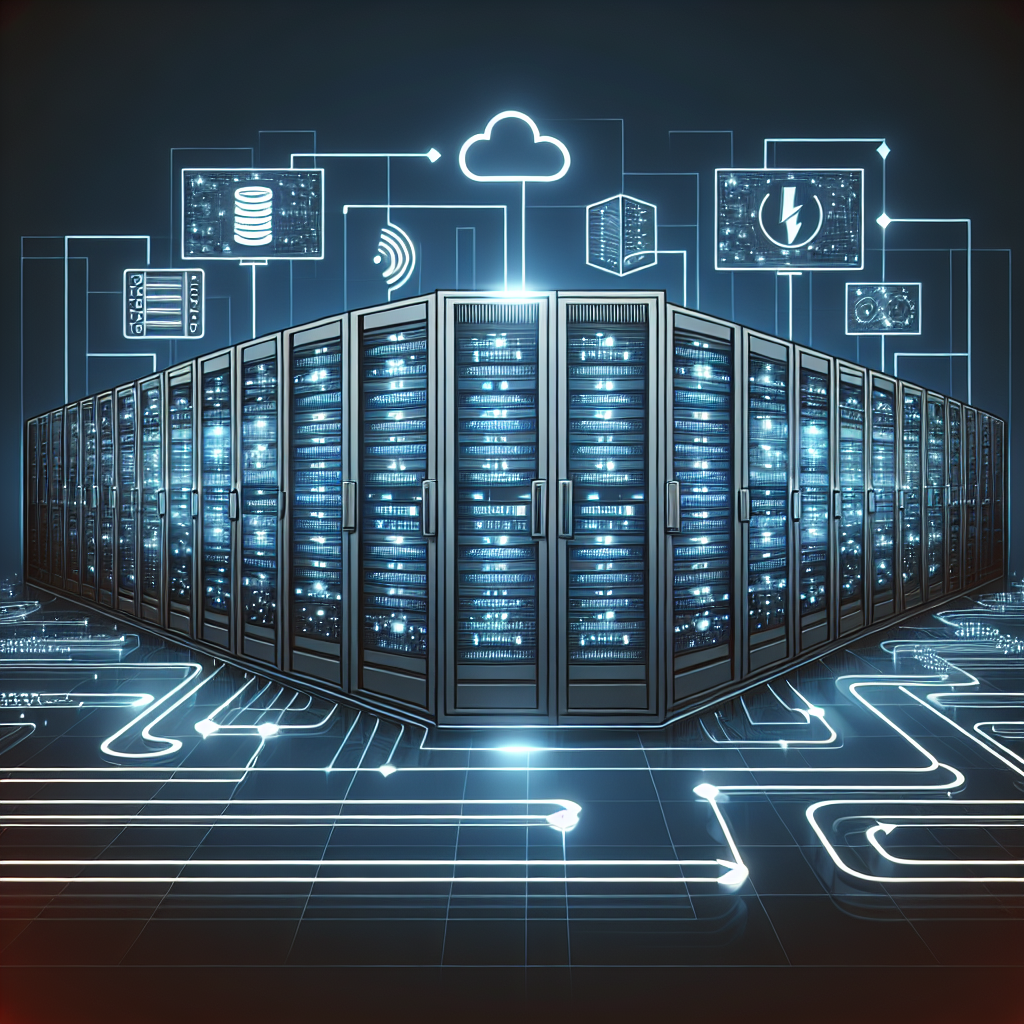
The Role of UPS Systems in Ensuring Data Center Security and Reliability
In today’s digital age, data centers play a crucial role in storing and managing vast amounts of information for businesses and organizations. As such, ensuring the security and reliability of these data centers is paramount. One key component in achieving this is the use of Uninterruptible Power Supply (UPS) systems.UPS systems are critical in safeguarding data centers from power outages and fluctuations. These systems provide a continuous power supply to servers and other critical equipment, ensuring that data is not lost or corrupted during unexpected power interruptions. This is particularly important in data centers where even a brief loss of power can result in significant downtime and potential data loss.
In addition to providing backup power, UPS systems also help to regulate voltage levels and filter out power surges and spikes. This helps to protect sensitive equipment from damage and ensures that data is not compromised due to electrical issues.
Another important role of UPS systems in data center security is in preventing cyber attacks. In the event of a power outage, servers and other equipment may be vulnerable to hacking or data breaches. UPS systems help to maintain power to critical systems, allowing data center operators to quickly respond to and mitigate any security threats.
Furthermore, UPS systems also contribute to the overall reliability of data centers. By providing a stable and reliable power supply, these systems help to reduce the risk of equipment failure and downtime. This is essential for businesses and organizations that rely on their data centers to operate efficiently and effectively.
In conclusion, UPS systems play a crucial role in ensuring the security and reliability of data centers. By providing backup power, regulating voltage levels, and protecting against cyber threats, UPS systems help to safeguard critical data and ensure that operations run smoothly. Investing in a high-quality UPS system is essential for any organization looking to protect their data center and maintain business continuity.
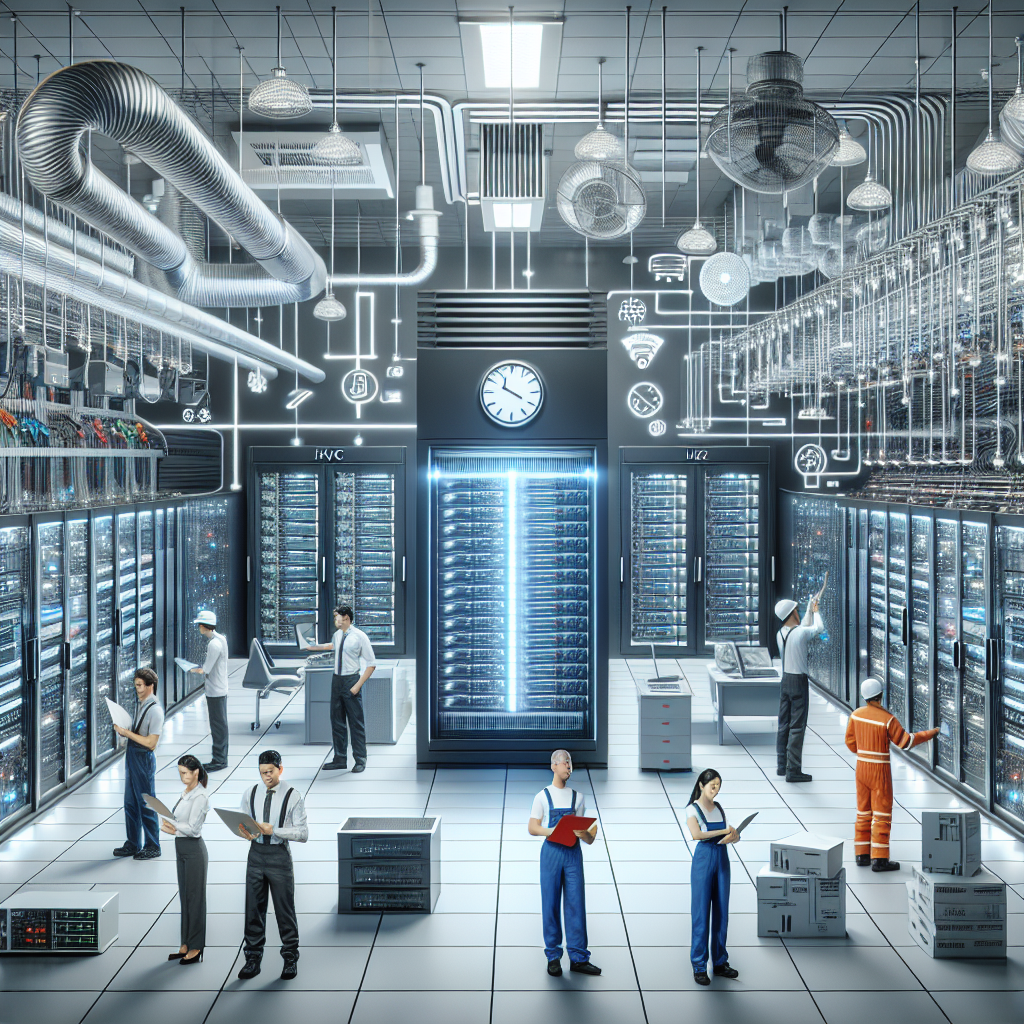
Best Practices for Maintaining HVAC Systems in Data Centers
Data centers play a crucial role in our digital world, housing the servers and equipment that store and manage vast amounts of data. With so much riding on these systems, it’s essential to ensure they are properly maintained and running efficiently. One key component of data center maintenance is the HVAC system, which is responsible for regulating temperature and humidity levels to keep equipment running smoothly.Here are some best practices for maintaining HVAC systems in data centers:
Regular Inspections: It’s important to schedule regular inspections of the HVAC system to identify any issues before they become major problems. This includes checking for leaks, blockages, and signs of wear and tear on components.
Filter Replacement: One of the simplest and most effective ways to maintain an HVAC system is to regularly replace filters. Dirty filters can restrict airflow and reduce the efficiency of the system, leading to higher energy costs and potential equipment failure.
Proper Airflow: Ensuring proper airflow is essential for keeping data center equipment cool and preventing overheating. Make sure that vents and ducts are clear of obstructions and that air is circulating effectively throughout the space.
Temperature and Humidity Control: Data centers require precise temperature and humidity control to prevent equipment from overheating or becoming too damp. Regularly monitor these levels and make adjustments as needed to maintain optimal conditions.
Scheduled Maintenance: In addition to regular inspections, it’s important to schedule routine maintenance for the HVAC system. This may involve cleaning coils, lubricating moving parts, and checking refrigerant levels to ensure everything is working properly.
Emergency Planning: Despite best efforts, HVAC systems can still experience unexpected failures. It’s important to have a contingency plan in place in case of emergencies, such as having backup cooling systems or portable units on hand to keep equipment running until repairs can be made.
By following these best practices for maintaining HVAC systems in data centers, you can help ensure that your equipment operates efficiently and reliably. Proper maintenance not only extends the life of your HVAC system but also helps protect your valuable data and investments. Don’t overlook the importance of regular inspections, filter replacements, airflow management, and temperature control in keeping your data center running smoothly.
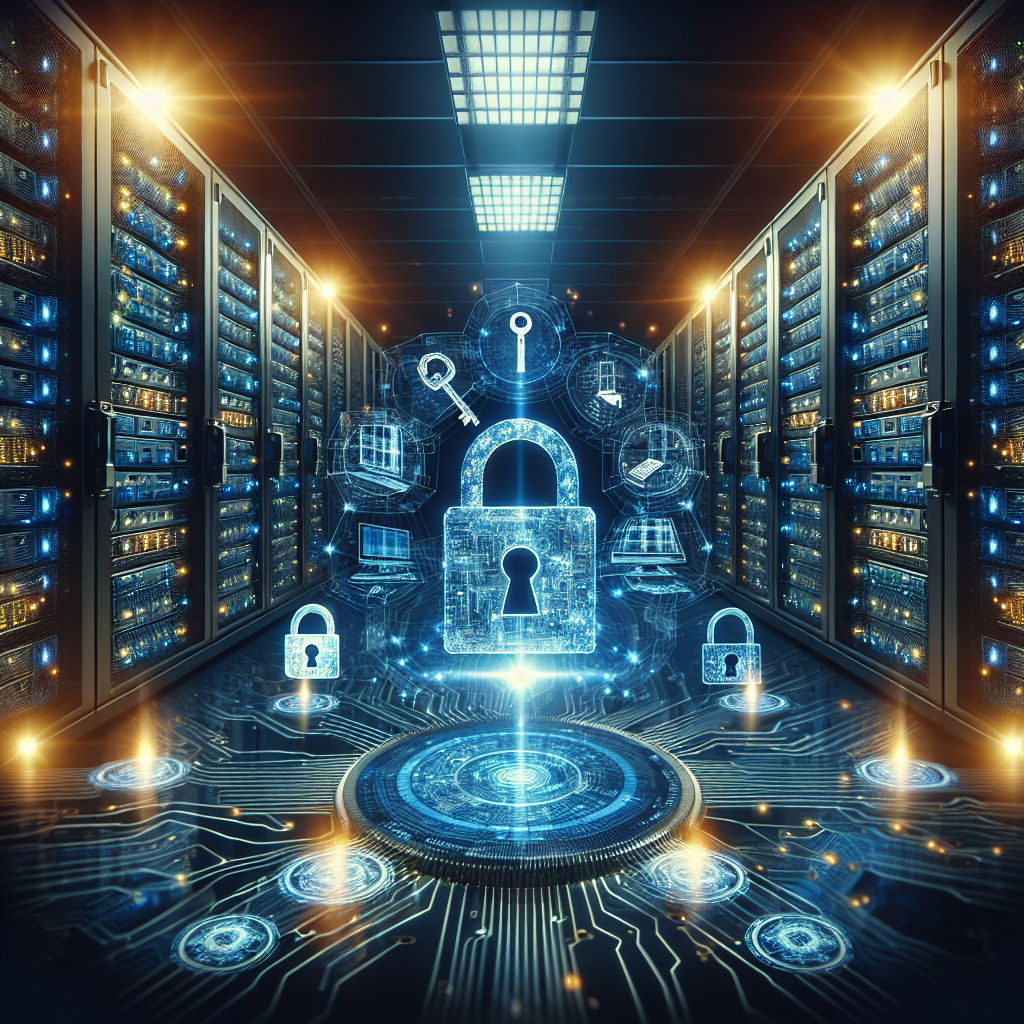
Keeping Your Data Safe: The Role of Security Systems in Data Centers
Data centers play a crucial role in today’s digital world, serving as the central hub for storing and processing vast amounts of information. With the increasing amount of sensitive data being stored in data centers, it has become more important than ever to ensure that this information is kept safe and secure. One of the key components in safeguarding data in data centers is the implementation of robust security systems.Security systems in data centers are designed to protect against both physical and cyber threats. Physical security measures include access control systems, surveillance cameras, and alarms to monitor and control who enters the facility. These measures help prevent unauthorized individuals from gaining access to the data center and potentially compromising the sensitive information stored within.
In addition to physical security, data centers also employ various cybersecurity measures to protect against cyber threats. This includes firewalls, intrusion detection systems, and encryption techniques to safeguard data from unauthorized access, theft, or manipulation. Regular security audits and penetration testing are also conducted to identify and address any vulnerabilities in the system.
One of the key aspects of data center security is data backup and disaster recovery planning. In the event of a security breach or natural disaster, having a reliable backup system in place ensures that data can be recovered quickly and efficiently. This helps minimize downtime and ensures that critical business operations can continue uninterrupted.
Furthermore, data centers often have redundant power and cooling systems in place to ensure continuous operation even in the event of power outages or equipment failures. These redundancies help prevent data loss and ensure that data remains accessible at all times.
Overall, security systems play a crucial role in protecting the sensitive data stored in data centers. By implementing a combination of physical and cybersecurity measures, data center operators can ensure that their data remains safe and secure from potential threats. As technology continues to evolve and data becomes increasingly valuable, investing in robust security systems is essential to safeguarding data and maintaining the trust of customers and stakeholders.
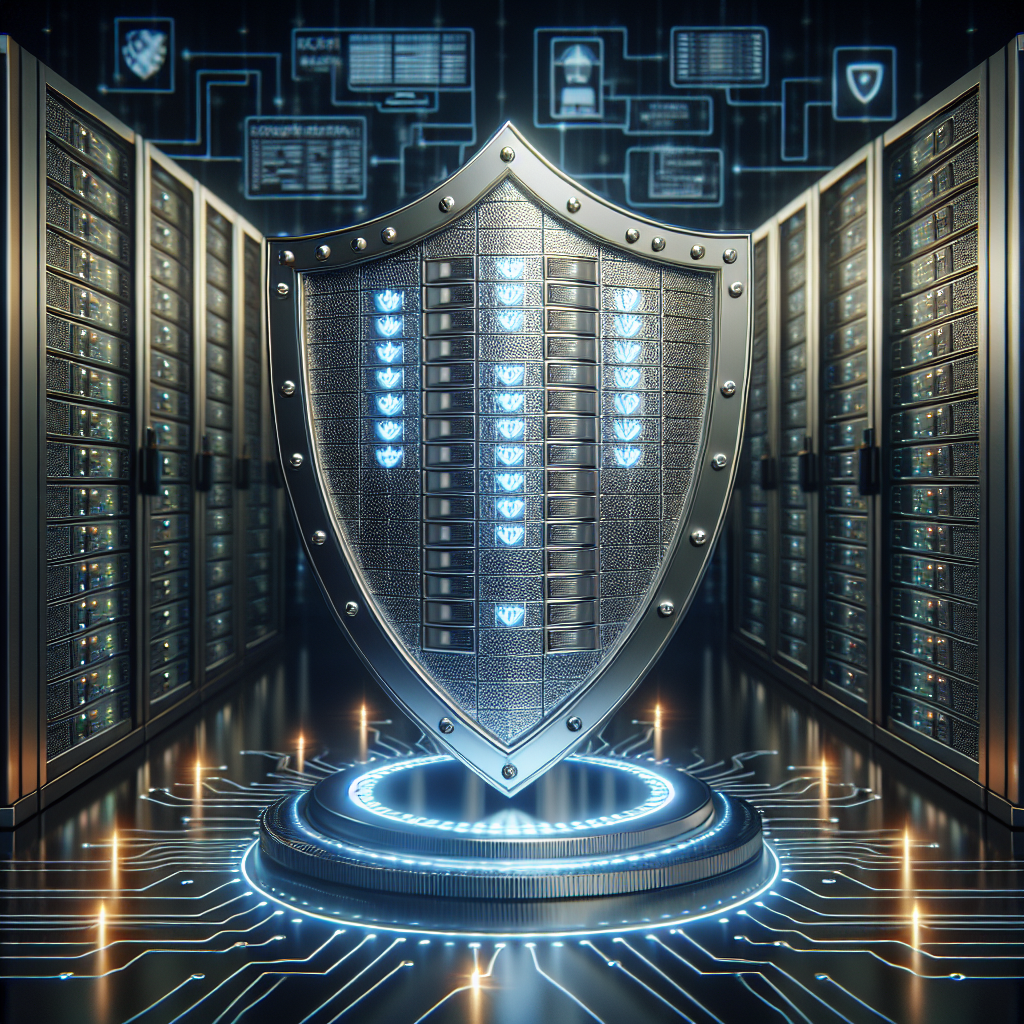
Data Center Defense: Implementing Robust Security Systems to Combat Cyber Threats
In today’s digital age, data centers play a critical role in storing and managing vast amounts of sensitive information for businesses and organizations. With the ever-increasing threat of cyber attacks, it is imperative for data centers to have robust security systems in place to protect against potential breaches and ensure the safety of their data.Cyber threats are becoming more sophisticated and prevalent, making it essential for data centers to implement strong defense mechanisms to safeguard their infrastructure and data. Hackers are constantly looking for vulnerabilities to exploit, whether it be through phishing scams, malware, ransomware, or other forms of cyber attacks. The consequences of a successful breach can be devastating, resulting in data loss, financial losses, reputational damage, and legal repercussions.
To combat these threats, data centers must prioritize cybersecurity and invest in advanced security systems to protect their assets. One of the key components of data center defense is implementing a multi-layered security approach that includes both physical and digital measures. This includes:
1. Firewalls and Intrusion Detection Systems: Firewalls act as a barrier between the internal network and the internet, monitoring and filtering incoming and outgoing traffic to block potential threats. Intrusion detection systems (IDS) can detect and respond to malicious activities in real-time, alerting security personnel to any suspicious behavior.
2. Encryption: Data encryption is essential for protecting sensitive information from unauthorized access. By encrypting data at rest and in transit, data centers can ensure that even if a breach occurs, the data remains secure and unintelligible to hackers.
3. Access Controls: Implementing strong access controls, such as multi-factor authentication and role-based access control, can prevent unauthorized users from gaining access to the data center’s systems and resources. Regularly reviewing and updating access permissions is also crucial in maintaining the integrity of the security measures.
4. Security Monitoring and Incident Response: Data centers should have robust security monitoring in place to detect and respond to any potential security incidents promptly. This includes conducting regular security audits, penetration testing, and vulnerability assessments to identify and address any weaknesses in the system.
5. Employee Training: Human error is often a significant factor in security breaches, so it is essential to educate employees on best practices for cybersecurity. Training programs should cover topics such as phishing awareness, password security, and social engineering tactics to help employees recognize and mitigate potential threats.
In conclusion, data center defense is a critical aspect of cybersecurity in today’s digital landscape. By implementing robust security systems and best practices, data centers can effectively combat cyber threats and protect their valuable assets. Investing in cybersecurity measures is not only essential for safeguarding data but also for maintaining the trust and confidence of customers and stakeholders. As cyber threats continue to evolve, data centers must remain vigilant and proactive in their efforts to ensure the security and integrity of their infrastructure.
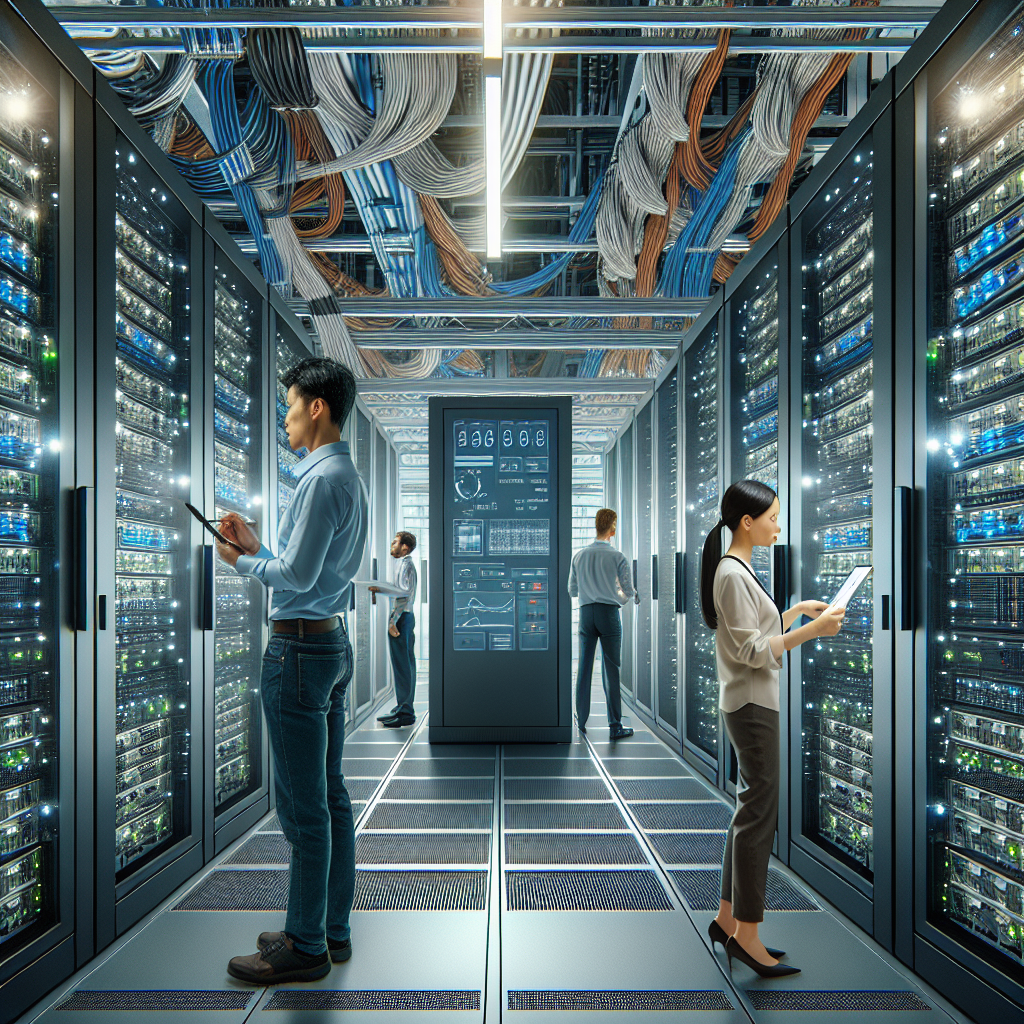
Optimizing Energy Efficiency in Data Center Electrical Systems
In today’s digital age, data centers play a crucial role in storing and processing vast amounts of information. As the demand for data storage continues to grow, so does the need for energy to power these facilities. Data centers are known to be significant energy consumers, accounting for a substantial portion of global electricity usage.Optimizing energy efficiency in data center electrical systems is essential to reduce energy consumption, lower operating costs, and minimize environmental impact. By implementing energy-efficient practices and technologies, data center operators can improve their overall sustainability and meet their energy efficiency goals.
One of the key factors in optimizing energy efficiency in data center electrical systems is proper design and layout. Data centers should be designed with energy efficiency in mind, taking into consideration factors such as airflow management, equipment placement, and cooling systems. By optimizing the layout of the data center, operators can reduce energy waste and improve overall efficiency.
Another important aspect of optimizing energy efficiency in data center electrical systems is the use of energy-efficient equipment. Data center operators should invest in energy-efficient servers, storage devices, and networking equipment to reduce energy consumption. Additionally, the use of virtualization technology can help consolidate servers and reduce energy usage by running multiple virtual machines on a single physical server.
In addition to equipment upgrades, data center operators can also implement energy-saving strategies such as adjusting temperature set points, utilizing free cooling when possible, and implementing power management technologies. These strategies can help reduce energy consumption and lower operating costs without sacrificing performance.
Regular maintenance and monitoring of electrical systems are also essential in optimizing energy efficiency in data centers. By conducting regular inspections, operators can identify and address energy inefficiencies, equipment failures, and other issues that may impact energy consumption. Monitoring energy usage in real-time can also help data center operators identify areas for improvement and make informed decisions to optimize energy efficiency.
Overall, optimizing energy efficiency in data center electrical systems requires a holistic approach that involves proper design, energy-efficient equipment, strategic energy-saving strategies, and regular maintenance and monitoring. By implementing these practices, data center operators can reduce energy consumption, lower operating costs, and improve overall sustainability. In a world where data centers play a critical role in our daily lives, it is crucial to prioritize energy efficiency to ensure a more sustainable future.
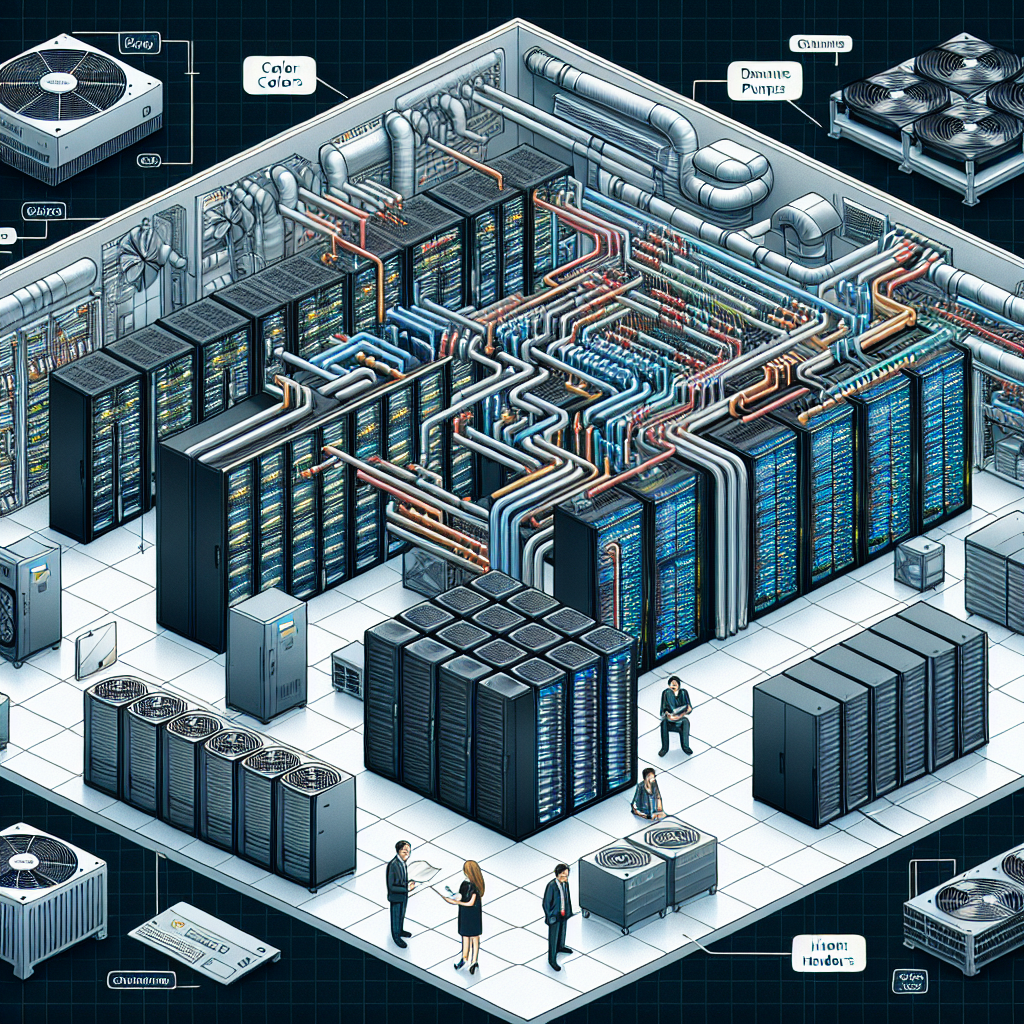
Key Considerations for Designing HVAC Systems in Data Centers
Data centers are critical facilities that house servers, networking equipment, and other hardware essential for the operation of businesses and organizations. These facilities require precise environmental control to ensure the optimal performance and longevity of the equipment housed within. One of the key components of this environmental control is the HVAC (heating, ventilation, and air conditioning) system.Designing an HVAC system for a data center requires careful consideration of several factors to ensure that the equipment operates efficiently and reliably. Here are some key considerations for designing HVAC systems in data centers:
1. Cooling Capacity: Data centers generate a significant amount of heat due to the operation of servers and other equipment. The HVAC system must be able to effectively remove this heat to maintain a stable and optimal operating temperature. Calculating the cooling capacity required for a data center involves considering factors such as the size of the facility, the heat output of the equipment, and the desired temperature range.
2. Redundancy: Data centers are mission-critical facilities that cannot afford downtime. Therefore, it is essential to design the HVAC system with redundancy in mind to ensure continuous operation in the event of a component failure. This may involve the installation of backup cooling units, redundant piping systems, and other fail-safe measures.
3. Air Distribution: Proper air distribution is essential for maintaining a uniform temperature and humidity level throughout the data center. The HVAC system should be designed to deliver cool air to the equipment racks efficiently and remove hot air from the server aisles to prevent hot spots and equipment overheating.
4. Energy Efficiency: Data centers are notorious for their high energy consumption, and the HVAC system is a significant contributor to this energy usage. Designing an energy-efficient HVAC system can help reduce operating costs and minimize the environmental impact of the facility. This may involve the use of high-efficiency cooling units, variable speed fans, and other energy-saving technologies.
5. Environmental Controls: Data centers require precise environmental controls to maintain the optimal conditions for equipment operation. The HVAC system should be equipped with sensors and controls to monitor and adjust temperature, humidity, and air quality levels as needed. Additionally, the system should be integrated with the building management system to provide centralized monitoring and control of the facility’s environmental conditions.
6. Scalability: Data centers are dynamic environments that may undergo expansion or upgrades over time. When designing an HVAC system for a data center, it is important to consider scalability to accommodate future growth. This may involve oversizing the system initially or designing it with modular components that can be easily expanded or modified as needed.
In conclusion, designing an HVAC system for a data center requires careful consideration of factors such as cooling capacity, redundancy, air distribution, energy efficiency, environmental controls, and scalability. By addressing these key considerations, data center operators can ensure that their HVAC system effectively supports the operation of critical equipment and maintains optimal environmental conditions within the facility.
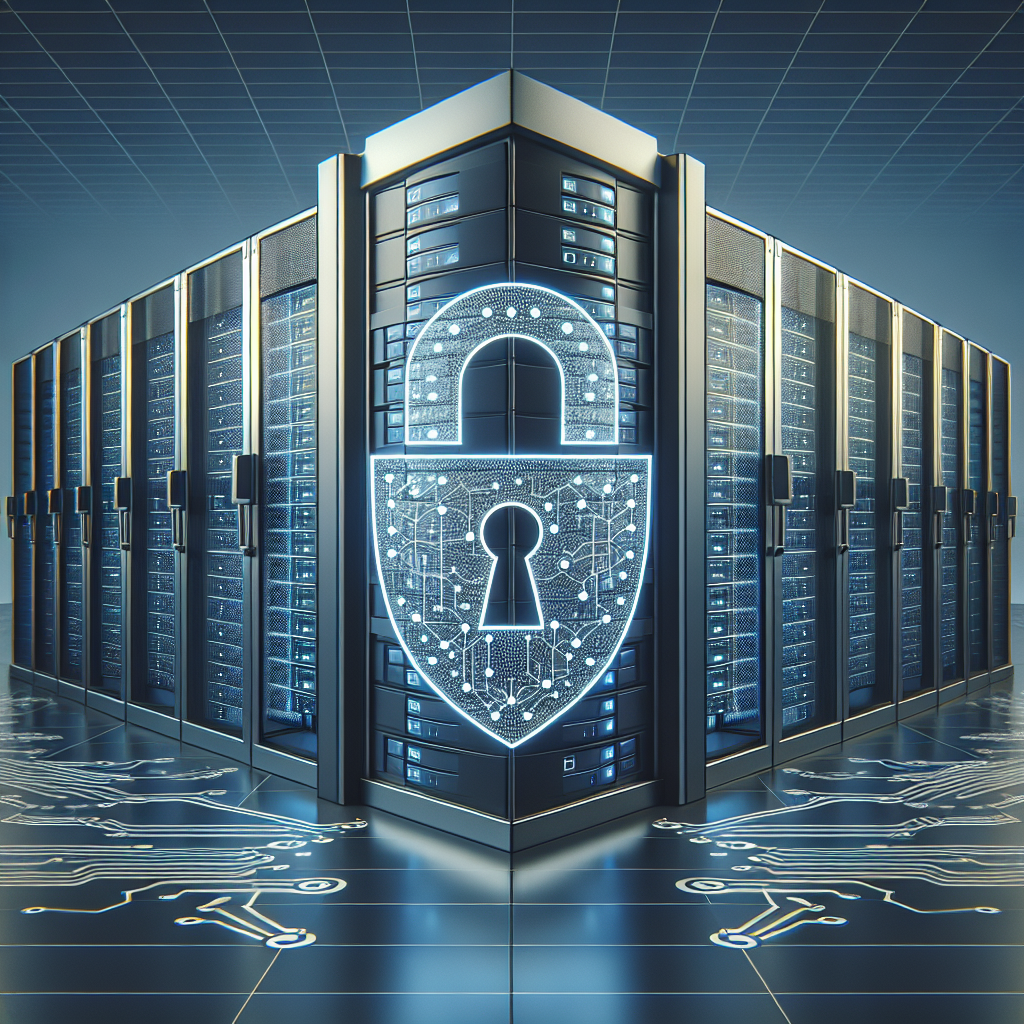
Securing Your Information: How Data Center Security Systems Safeguard Your Data
In today’s digital age, the protection of sensitive information is of utmost importance. With the increasing amount of data being stored and transmitted online, the risk of data breaches and cyber attacks is higher than ever before. This is why data center security systems play a crucial role in safeguarding your data and ensuring that it remains secure.Data centers are facilities that house computer systems and components, such as servers, storage devices, and networking equipment. They are responsible for storing and processing large amounts of data, making them a prime target for hackers and cyber criminals. As such, data center security systems are designed to prevent unauthorized access, protect against physical threats, and ensure the integrity and confidentiality of the data stored within.
One of the key components of data center security systems is access control. This involves implementing measures such as biometric authentication, smart cards, and password protection to restrict access to authorized personnel only. By limiting who can enter the data center and access its systems, organizations can prevent unauthorized individuals from tampering with or stealing sensitive information.
Physical security measures are also essential in protecting data centers from external threats. This includes installing surveillance cameras, motion sensors, and alarm systems to monitor and detect any suspicious activity. Additionally, data centers are often equipped with fire suppression systems, temperature controls, and backup power supplies to ensure the safety and continuity of operations in the event of a disaster.
In addition to these measures, data center security systems also include encryption techniques to protect data in transit and at rest. This involves encoding information in a way that makes it unreadable to anyone without the proper decryption key. By encrypting data, organizations can ensure that even if it is intercepted by hackers, it will be of no use to them without the encryption key.
Regular security audits and penetration testing are also important components of data center security systems. By regularly assessing and testing the effectiveness of security measures, organizations can identify and address any vulnerabilities before they are exploited by cyber attackers. This proactive approach to security helps to mitigate the risk of data breaches and protect sensitive information from falling into the wrong hands.
In conclusion, data center security systems play a critical role in safeguarding your data and ensuring that it remains secure. By implementing access control measures, physical security controls, encryption techniques, and regular security audits, organizations can protect their data from unauthorized access, theft, and cyber attacks. Investing in robust data center security systems is essential in today’s digital landscape to protect the integrity and confidentiality of your information.
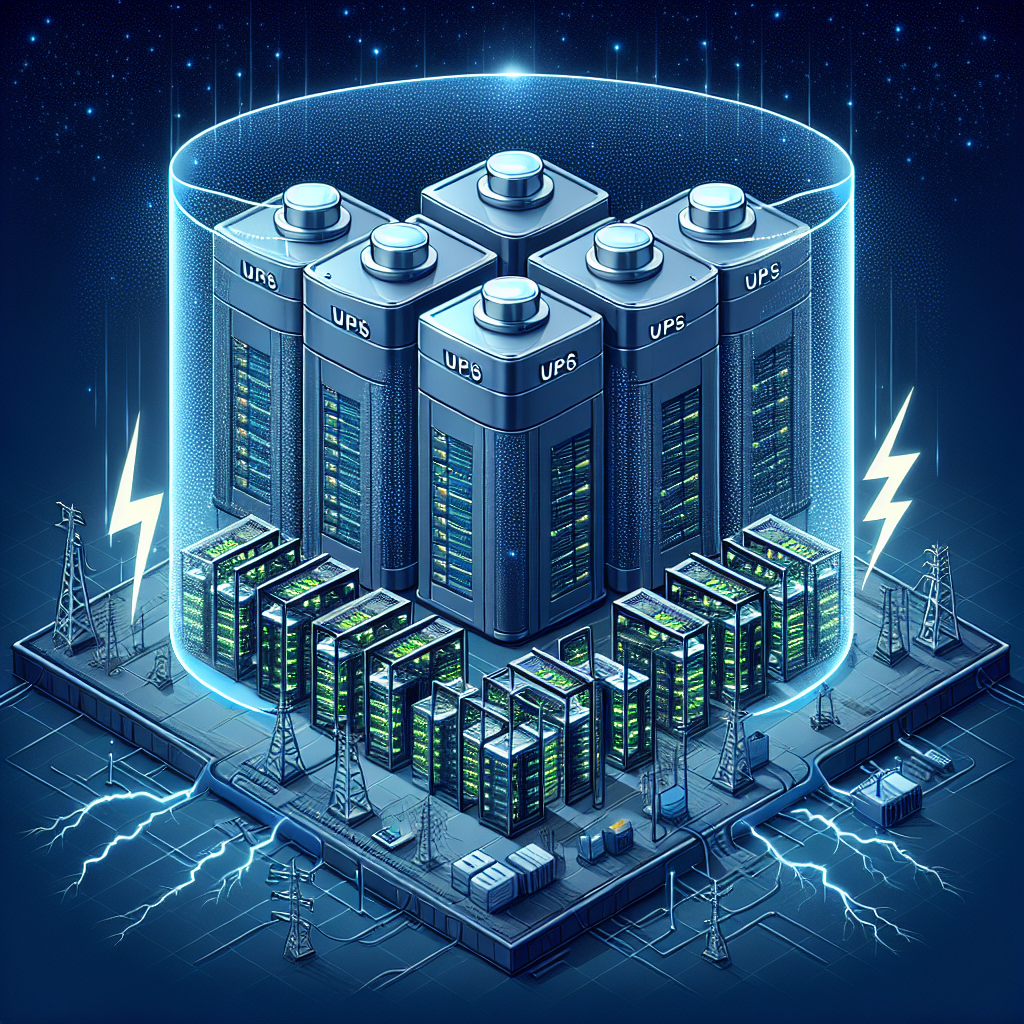
How UPS Systems Protect Data Centers from Power Outages
In today’s digital age, data centers are crucial for businesses to store and process large amounts of information. However, one of the biggest threats to the smooth operation of a data center is power outages. These outages can be caused by a variety of factors such as severe weather, equipment failure, or even human error. When a data center loses power, it can result in significant downtime, data loss, and potential damage to critical hardware.To mitigate the risks associated with power outages, many data centers rely on Uninterruptible Power Supply (UPS) systems. UPS systems are designed to provide temporary power to critical equipment in the event of a power outage. They act as a buffer between the main power source and the data center’s equipment, ensuring that operations can continue uninterrupted until backup power sources are activated or the main power source is restored.
There are several ways in which UPS systems protect data centers from power outages. Firstly, UPS systems provide immediate power backup when the main power source fails. This ensures that critical equipment such as servers, storage devices, and networking hardware remain operational, preventing data loss and downtime.
Secondly, UPS systems can also help to regulate and stabilize the power supply to the data center’s equipment. Fluctuations in power quality, such as surges or sags, can damage sensitive hardware components and cause data corruption. UPS systems can filter out these fluctuations and provide a consistent and stable power supply to protect the data center’s equipment.
Furthermore, UPS systems can also help to facilitate a smooth transition to backup power sources, such as generators or battery banks, in the event of a prolonged power outage. This ensures that the data center remains operational for an extended period of time until power is restored.
In addition to protecting data centers from power outages, UPS systems can also help to improve energy efficiency and reduce operating costs. By providing a more stable and regulated power supply, UPS systems can help to reduce the risk of equipment failures and prolong the lifespan of critical hardware components. This can result in lower maintenance costs and increased overall efficiency for the data center.
In conclusion, UPS systems play a crucial role in protecting data centers from power outages. By providing immediate power backup, regulating power quality, and facilitating a smooth transition to backup power sources, UPS systems help to ensure the continuous operation of critical equipment and prevent data loss and downtime. Investing in a reliable UPS system is essential for any data center looking to safeguard its operations and protect its valuable data.
